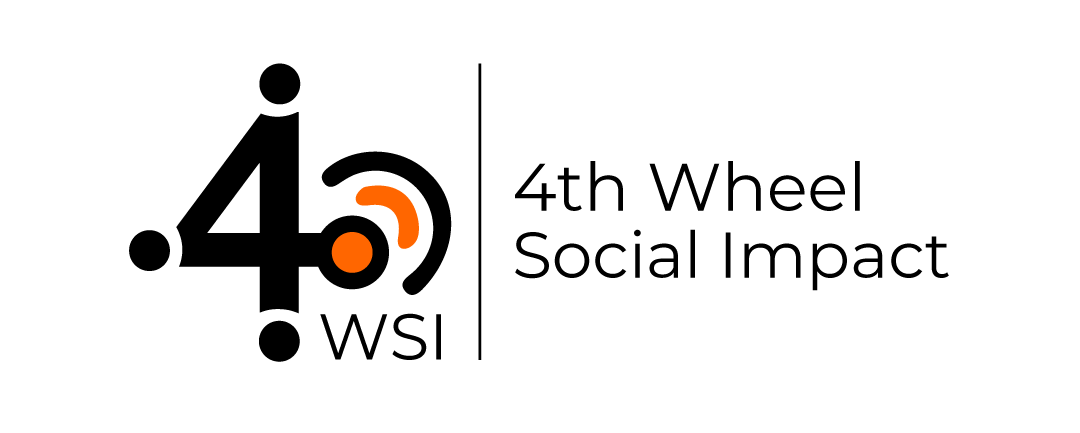Why is Social Impact Assessment Important in India?
- The 4th Wheel

- Mar 28, 2021
- 4 min read
Updated: Sep 15, 2025
Social Impact Assessment (SIA) is a critical tool for understanding the social consequences of planned projects and developments. It examines the effects of proposed initiatives on the communities and populations they will affect. This process is vital because it helps identify potential social risks and benefits, allowing stakeholders to make informed decisions that promote positive outcomes and mitigate negative impacts.
In India, where rapid development is a key focus, the importance of social impact assessment cannot be overstated. As the country continues to grow, numerous projects and programs, ranging from infrastructure development to industrial expansion, are underway, prompting many organisations to seek guidance from an experienced social impact consulting firm to evaluate the effects of their initiatives more systematically.
Each of these projects has the potential to significantly impact local communities. The amended Corporate Social Responsibility (CSR) Rules, 2021, require that corporations now view CSR activities in a more scientific way and invest in impact assessment studies of their CSR projects for enhanced social impact. This showcases a positive approach to moving beyond philanthropy and integrating the idea of ‘shared value creation’ among businesses in India.
Through effective SIAs, companies can anticipate and address these impacts, seeing that the benefits of development are maximised while minimizing harm to the community and environment.
What is the Aim of Social Impact Assessment?
The aim of Social Impact Assessment (SIA) is to identify and understand the social consequences of planned projects and developments. It seeks to predict how these projects will affect the well-being of communities, considering factors like health, environment, economy, and cultural heritage.
By assessing these impacts beforehand, SIA helps companies and stakeholders make informed decisions that balance development goals with social well-being. The ultimate goal is to create projects that not only achieve their objectives but also contribute positively to the communities they touch, fostering sustainable and inclusive growth.
Why Social Impact Assessment is Particularly Important for Community-Based Projects
1. To Drive Accountability
When you win funding from an organisation, donors will usually make it compulsory to report back on what you are doing and what you are spending their money on. You might have predetermined targets with them such as the number of people your project will reach within a given time. You will need to monitor your project regularly to collect this information.
2. To Secure Future Funding
Funding bodies will want to see concrete evidence of the social impact your organisation has to help them decide whether to give you additional funding and decipher the type of support. Ongoing monitoring and evaluation can provide evidence of what a project has achieved and what might be achieved as project implementation continues in the future.
3. To Check The Project’s Progress Against Your Original Plans
It can be easy to lose sight of the original aims you had for your project. Monitoring it on a monthly, quarterly, or yearly basis and checking whether you are still on course to achieve your goals will prevent this. A social impact assessment process also helps you keep an eye on whether you are adhering to your stipulated timelines and budgets.
4. To Learn From Your Experience
Appropriate monitoring and evaluation of your project means you can see what has worked well and what has not. You can subsequently use this information to improve future projects or funding applications. Social impact assessment tools enable organisations to collect data that track successes and failures and help to build strong data management systems.
5. To Motivate Staff And Volunteers
Showing your volunteers and staff real and concrete evidence of their impact will make them feel great. Environmental and social impact assessment can also encourage them to continue working with your organisation and involve them in future endeavours of the change journey of your organisation.
The Need For Social Impact Assessment in India
In India, the rapid pace of development brings both opportunities and challenges. Social Impact Assessment (SIA) is crucial in navigating this landscape to balance growth with social well-being.
Addressing Socio-Economic Challenges: India faces various socio-economic issues, including poverty, inequality, and displacement. Social impact assessment helps identify how projects might impact these areas. It allows for strategies to mitigate negative effects and promote positive outcomes.
Environmental Considerations: Many development projects can significantly affect the environment. SIA considers these impacts and makes sure that projects contribute to sustainable development while minimizing harm to natural resources.
Community Well-being: Large-scale projects often disrupt local communities. SIA involves engaging with these communities to understand their concerns and needs. It sees to it that development benefits are distributed equitably.
Legal and Regulatory Compliance: In India, there are stringent laws governing the social impacts of development projects. Conducting SIA helps organisations comply with these regulations which, in turn, helps avoid legal complications and fosters responsible development practices.
Building Trust and Transparency: By involving stakeholders and maintaining transparency throughout the project, SIA builds trust between developers and the community. This collaborative approach results in projects that are more likely to receive community support and succeed in the long term.
Conclusion
Social Impact Assessment (SIA) is more than just a regulatory requirement. It is a tool for fostering sustainable and inclusive development. In India, where development projects can deeply affect communities and the environment, impact evaluation plays a crucial role. It helps identify potential impacts, engage stakeholders, and create strategies for positive outcomes.
By prioritising social and environmental well-being, it not only aids in legal compliance but also builds trust and cooperation among all parties involved. Through Social Impact Assessment, we can pave the way for development that benefits everyone and create a brighter, more equitable future for all.
Need your Social Impact Assessment to be faultless every single time? Get in touch with our expert social impact consultants at 4th Wheel and get solutions that are uniquely tailored to your project.




Comments